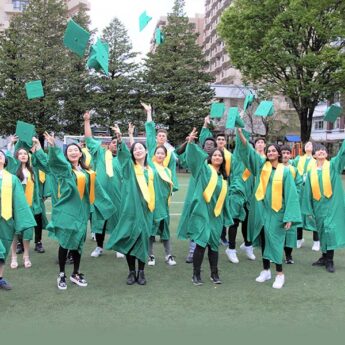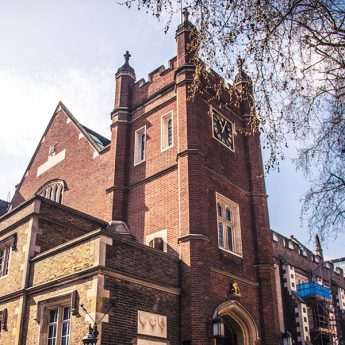The impact of Covid-19 on business is very clear, but the disruption caused by preventive measures have also been felt in education—and not simply in the shift to remote learning. Students sitting for Advanced Levels (A levels) and General Certificates of Secondary Education (GCSEs) found summer exams cancelled and their academic futures out of their hands.
The Department for Education (DfE) website published guidance for taking exams during the coronavirus outbreak which stated: “On Monday 17 August, [the Office of Qualifications and Examinations Regulation] confirmed that there no longer would be a standardisation process for AS and A levels or GCSEs and instead all students will be awarded the centre assessment grade submitted by their school or college, unless it is lower than their calculated grade in which case the calculated grade will stand. Unless there is evidence that a processing error has been made, these grades will be final. Students will be able to use the grades they receive in the summer to move on to their next step”.
Local effect
That decision was felt not only across the UK but also here in Japan.
British School in Tokyo (BST) Principal Paul Tough said this “has been a difficult year and the strangest of times for A level and GCSE students. They, their parents and our staff have experienced incredible and unnecessary anxiety caused by school closures, the exam grading fiasco and uncertainty over university offers,” he told ACUMEN. “In not sitting exams, this cohort have missed out more than any other in not having the ability to evidence all of their hard work and control their own destiny”.
Tough said that BST students also have not had the opportunity to end their time at the school and say farewell to their peers and teachers, with many of whom they have worked for nearly seven years, and that has been difficult.
Despite the situation, BST was able to have a safe, low-key ceremony for Year 13 students on 12 June, providing them with the experience of a graduation.
“Our students have demonstrated exceptional maturity in the way they have conducted themselves throughout this period, and the school is proud of all our students and the outcomes they have achieved,” Tough said. “The maturity, resolve and resilience they have shown over the past six months has been hugely inspiring. They have achieved exceptional outcomes in extraordinary circumstances”.
Algorithmic outcome
As for the grading controversy that swept the UK in August, Tough said, “In essence, the system was flawed because it would not take into account the different abilities in school cohorts on a year-to-year basis”.
The British government’s decision to cancel A levels and, instead, rely on teacher assessments of a student’s potential—and to then process this data using an algorithm that also took into account the historic performance of each secondary school—sounded alarms.
“The algorithm had two main aims. The first was to prevent grade inflation and thereby ensure the exam results in 2020 would be broadly equivalent to exam results in previous and future years. The second was to ensure there was no unconscious bias by teachers in the awarding of grades,” Tough explained. “This sort of made sense. However, it is fundamentally unfair for students to be awarded grades not on their own performance but on the performance of previous cohorts at their schools”.
While the move was well intentioned, the results highlighted the risk of using artificial intelligence in matters that significantly impact an individual’s life. Outcry from those who received grades that might disqualify them from their first-choice universities, and accusations of socio-economic bias, forced a quick adjustment.
“Algorithms can be part of the assessment of a student’s aptitude. However, the most weight should be given to the teacher’s assessment. The current method used by Cambridge has worked for us,” said Edward Gilbreath, head of school at Little Angels International School (LAIS) in Mitaka. “There has been no controversy with the results at LAIS. Cambridge accepted results posted by our teachers. They requested backup information for one score and awarded our score based on the support materials that we submitted”.
Tough said: “I am pleased that the students’ hard work and the professional judgements of their teachers were ultimately recognised, and that the vast majority of students have achieved the outcomes they deserve. While the means by which results were derived were very unusual, students have had the support of their friends and families, and their teachers are no less proud of their achievements at BST”.
Although the situation has been resolved for many students, some may not be satisfied. According to the DfE: “Students who do not feel their final grade reflects their ability, or who were not able to receive a grade in the summer, will have the opportunity to sit an exam in the autumn term. AS and A level exams will take place in October and GCSE exams in November”.
Kirsten O’Connor, founder and director of educational services and tutoring firm Quest Tokyo, said: “School leaders, teachers and students will be seeking early reassurance and clarity from the DfE that procedures for examinations in 2021 will be reliable and transparent. Future Covid-19 challenges notwithstanding, it is essential that A-level and GCSE results are accurate and—most importantly—fair in August 2021”.







